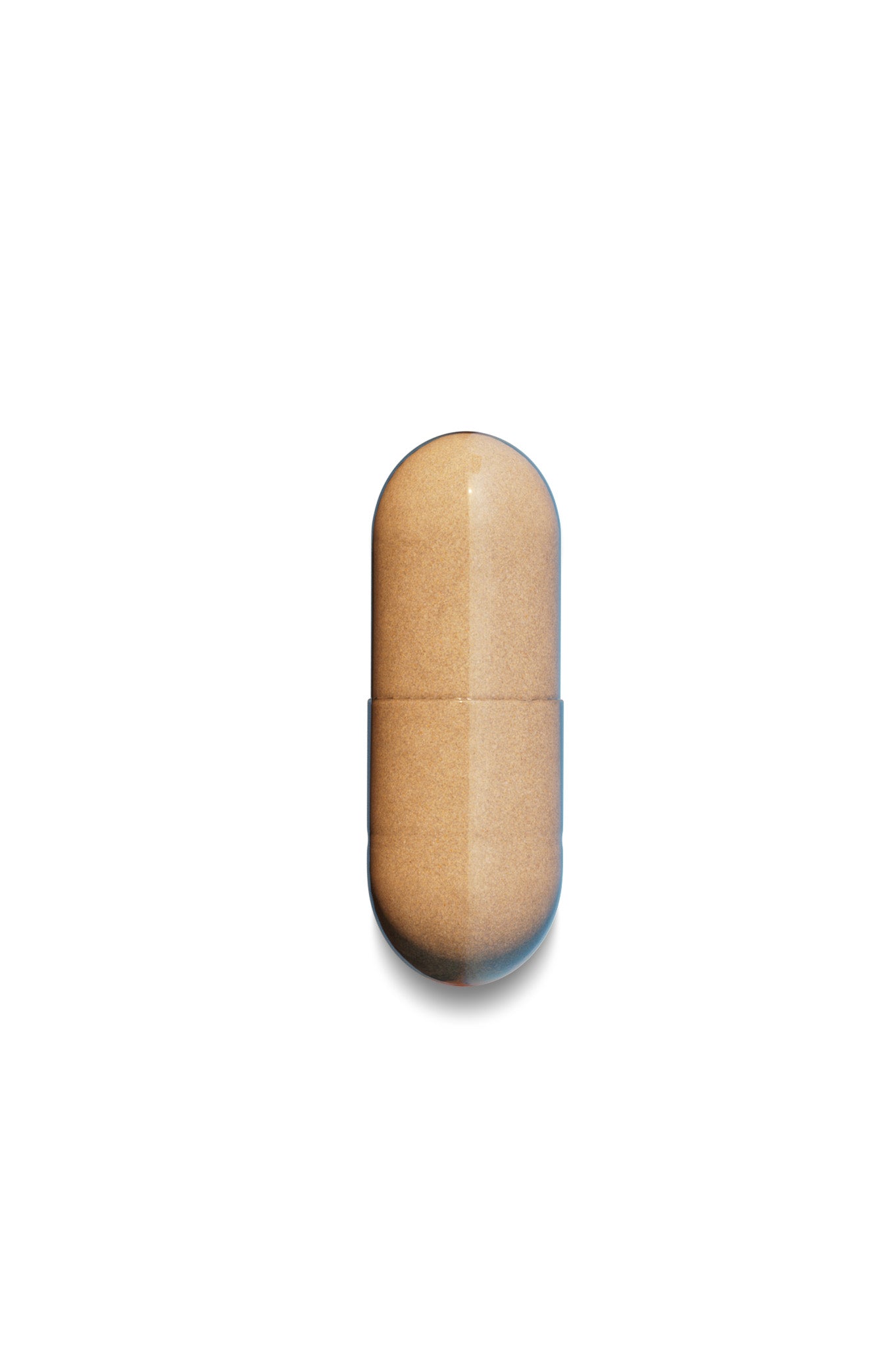
A SCIENTIFIC APPROACH
Longevity science has come a long way and many natural nutrients show high promise in positively affecting our wellbeing and longevity goals.
That is why we study the latest research, look to nature and other sources to carefully develop and upgrade our products.
As we pioneer nutrition well-being, our mission is to provide you with the greatest possible benefit based on the latest scientific findings.
STUDIES
Creatine and cognitive performance (10+ studies)
Creatine and cognitive performance (10+ studies)
Creatine is a compound that comes from three amino acids. It is found mostly in your body's muscles as well as in the brain. Mostly known from Bodybuilding through the increase in strenght and recovery, recent studies support Creatine's effect on brain health & cognitive function paving the way for Creatine as a champion for longevity and health.
[1] Effects of creatine supplementation on cognitive function of healthy individuals: A systematic review of randomized controlled trials [Avgerinos et al, 2018]
[2] Creatine Supplementation and Brain Health [Roschel et al. Nutrients. 2021]
[3] Effects of Creatine Supplementation on Brain Function and Health [Forbes et al. Nutrients. 2022]
[4] Beyond muscle: the effects of creatine supplementation on brain creatine, cognitive processing, and traumatic brain injury [Dolan et al. Eur J Sport Sci. 2019]
[5] Oral creatine monohydrate supplementation improves brain performance: a double-blind, placebo-controlled, cross-over trial. [Rae et al. Proc Biol Sci. 2003]
[6] The influence of creatine supplementation on the cognitive functioning of vegetarians and omnivores [Benton & Donohoe, 2011]
[7] Creatine Supplementation Enhances Corticomotor Excitability and Cognitive Performance during Oxygen Deprivation [Turner et al. J Neurosci. 2015]
[8] Creatine supplementation and cognitive performance in elderly individuals [McMorris et al, 2007]
[9] Increase of total creatine in human brain after oral supplementation of creatine-monohydrate [Dechent et al., 1999]
[10] Creatine as a booster for human brain function. How might it work? [Rae & Bröer, 2015]
L-Taurine and brain / cardiovascular health (10+ studies)
L-Taurine and brain / cardiovascular health (10+ studies)
L-Taurine is essential for the human body and is found in various body tissues, particularly in the central nervous system, brain and heart muscle. Taurine also plays a role in promoting cardio-vascular and brain function and cognitive performance. Recent studies supporting taurine's beneficial effects on brain health are listed below:
[1] The potential health benefits of taurine in cardiovascular disease [Xu et al. Exp Clin Cardiol. 2008]
[2] Functional Role of Taurine in Aging and Cardiovascular Health: An Updated Overview [Santulli et al. Nutrients. 2023]
[3] The effects of taurine supplementation on obesity, blood pressure and lipid profile: A meta-analysis of randomized controlled trials [Guan & Miao. Eur J Pharmacol. 2020]
[4] Taurine Supplementation Lowers Blood Pressure and Improves Vascular Function in Prehypertension: Randomized, Double-Blind, Placebo-Controlled Study [Sun et al. Hypertension. 2016]
[5] The Anti-Inflammatory Effect of Taurine on Cardiovascular Disease [Qaradakhi et al. Nutrients. 2020]
[6] Roles of taurine in cognitive function of physiology, pathologies and toxication [Chen et al. Life Sci. 2019]
[7] Does Single or Combined Caffeine and Taurine Supplementation Improve Athletic and Cognitive Performance without Affecting Fatigue Level in Elite Boxers? A Double-Blind, Placebo-Controlled Study [Ozan et al. Nutrients. 2022]
[8] Significance of Taurine in the Brain [Oja & Saransaari. Adv Exp Med Biol. 2017]
[9] Taurine Supplementation as a Neuroprotective Strategy upon Brain Dysfunction in Metabolic Syndrome and Diabetes [Rafiee et al. Nutrients. 2022]
[10] Taurine and its neuroprotective role [Kumari et al. Adv Exp Med Biol. 2013]
Ashwagandha and sleep / stress management
Ashwagandha and sleep / stress management
Ashwagandha (lat. Withania somnifera) is a plant from the nightshade family that grows mainly in India. It has been used there for more than 2000 years in Ayurvedic naturopathy. In Ayurveda, Withania somnifera is mainly used to treat sleep disorders, anxiety, stress and to support vitality. Recent studies supporting Ashwagandha's beneficial effects on sleep, mood and vitality are listed below:
[1] Effects of Ashwagandha (Withania somnifera) on VO2max: A Systematic Review and Meta-Analysis [PubMed]
[2] Triethylene glycol, an active component of Ashwagandha (Withania somnifera) leaves, is responsible for sleep induction [PubMed]
[3] Efficacy and Safety of Ashwagandha (Withania somnifera) Root Extract in Insomnia and Anxiety: A Double-blind, Randomized, Placebo-controlled Study [PubMed]
[4] Adaptogenic and Anxiolytic Effects of Ashwagandha Root Extract in Healthy Adults: A Double-blind, Randomized, Placebo-controlled Clinical Study [PubMed]
Maca and vitality and fertility (10+ studies)
Maca and vitality and fertility (10+ studies)
The maca plant has been cultivated in the upper altitudes of the Peruvian Andes for more than 2000 years and is used by the local inhabitants as a food and remedy. Maca is rich in essential micronutrients. Recent studies supporting Maca's beneficial effects on vitality and fertility are listed below:
[1] Ethnobiology and Ethnopharmacology of Lepidium meyenii (Maca), a Plant from the Peruvian Highlands [Gustavo, 2011]
[2] The use of maca (Lepidium meyenii) to improve semen quality: A systematic review [Myong et al, 2016]
[3] Structural Characterization and Antifatigue Effect In Vivo of Maca (Lepidium meyenii Walp) Polysaccharide [Tang et al, 2018]
[4] Peruvian Maca (Lepidium peruvianum): (II) Phytochemical Profiles of Four Prime Maca Phenotypes Grown in Two Geographically-Distant Locations [Meissner et al, 2016]
[5] Effect of Lepidium meyenii (MACA) on sexual desire and its absent relationship with serum testosterone levels in adult healthy men [Gonzales et al, 2002]
[6] Acceptability, Safety, and Efficacy of Oral Administration of Extracts of Black or Red Maca (Lepidium meyenii) in Adult Human Subjects: A Randomized, Double-Blind, Placebo-Controlled Study [Gonzales et al, 2016]
[7] A pilot investigation into the effect of maca supplementation on physical activity and sexual desire in sportsmen [Stone et al, 2009]
[8] A double-blind placebo-controlled trial of maca root as treatment for antidepressant-induced sexual dysfunction in women [Dording et al, 2015]
[9] Beneficial effects of Lepidium meyenii (Maca) on psychological symptoms and measures of sexual dysfunction in postmenopausal women [Brooks et al, 2008]
[10] Subjective effects of Lepidium meyenii (Maca) extract on well-being and sexual performances in patients with mild erectile dysfunction: a randomized, double-blind clinical trial [Zenico et al, 2009]
Polyphenols and overall health and wellbeing
Polyphenols and overall health and wellbeing
Polyphenols are a large group of plant substances found in almost all fruits, cereals and vegetables. They belong to the so-called secondary plant substances, also known as phytochemicals or phytonutrients. Countless studies have shown the positive effects of polyphenols on our health including anti-cancerogenic, cell protective, anti-inflammatory and immune system supporting benefits:
[1] Watzl B: Influence of phytochemicals on health. In: German Society for Nutrition (DGE) (Hrsg.): Ernährungsbericht 2008. Bonn (2008) 335-379
[2] Watzl B:Influence of phytochemicals on health. In: German Society for Nutrition (DGE) (Hrsg.): 12. Ernährungsbericht 2012. Bonn (2012) 355-374.
[3] Analytik und Bedeutung von Polyphenolen in Lebensmitteln, Springer Verlag.
[4] Sekundäre Pflanzenstoffe und ihre Wirkung auf die Gesundheit [DGE.de]
Coenzyme Q10 for mitochondrial function
Coenzyme Q10 for mitochondrial function
Coenzyme Q10 is a molecule found in mitochondria that has a critical role in producing energy for the body. It also plays an important role in the endogenous antioxidant system.
[1] Metabolic Targets of Coenzyme Q10 in Mitochondria [Hidalgo-Gutiérrez et al, 2021]
[2] Coenzyme Q10 Supplementation in Aging and Disease [Hernández-Camacho et al, 2018]
[3] Coenzyme Q10 [Sood et al, 2024]
[4] Therapeutic potential of coenzyme Q10 in mitochondrial dysfunction during tacrolimus-induced beta cell injury [Luo et al, 2019]
[5] Bioavailability of coenzyme Q10 supplements depends on carrier lipids and solubilization [Lopez et al, 2019]
[6] Mitochondrial Dysfunction and Coenzyme Q10 Supplementation in Post-Viral Fatigue Syndrome: An Overview [Mantle et al, 2024]
Apigenin from Chamomille
Apigenin from Chamomille
Apigenin is one of the most commonly found flavonoids across plants. It is present, in several vegetables, herbs and fruits. Numerous studies across multiple animal models suggest that apigenin has connections with sleep and/or with its underlying neurobiology via the interaction with NAD+ pathways.
- Apigenin: a natural molecule at the intersection of sleep and aging [Kramer and Johnson, 2024]
Magnesium
Magnesium
Magnesium can be described as the king of minerals. It is a vital nutrient for humans as Magnesium plays a crucial role in performance and regeneration. Studies also suggest a positive relationship between Magnesium intake and sleep quality.
[1] Magnesium is important for regeneration and supports normal protein synthesis, the nervous system and energy metabolism [see list of EU Health Claims]
[2] Effectiveness of Magnesium Supplementation on Sleep Quality and Mood for Adults with Poor Sleep Quality: A Randomized Double-Blind Placebo-Controlled Crossover Pilot Trial [Breus et al, 2024]
[3] The effect of magnesium supplementation on primary insomnia in elderly: A double-blind placebo-controlled clinical trial [Behnood Abbasi et al, 2012]

FOLLOWING NATURE'S EXAMPLE
PhytoSync is our proprietary formulation system for synergistic and bioavailable ingredient combinations.
In nature, we find the combination of various nutrients and their phytochemicals in a way that maximizes their bioavailability and synergistic effects. We have adopted mirroring this principle as one of our primary product design philosophies.

